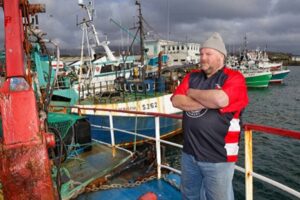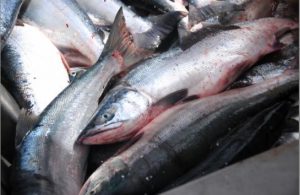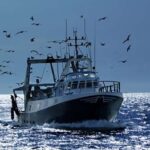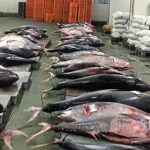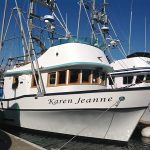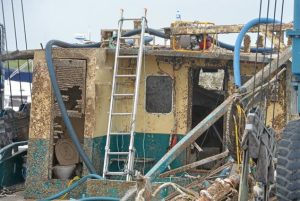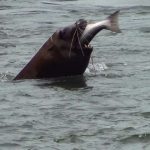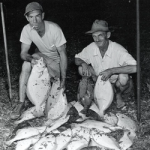Tag Archives: Maritime Fishermen’s Union
Major lobster plant in Escuminac, with 135 workers, temporarily closing
 A major lobster processing plant in Escuminac is temporarily closing its doors, two years after it was purchased by a private American investment firm. Raymond O’Neill & Son Fisheries employs about 135 seasonal workers each year. It was purchased in 2021 by ACON Investments, based in Washington, D.C. Luc LeBlanc, a fisheries advisor at the Maritime Fishermen’s Union, called the job losses at O’Neill & Son “another hard blow to our coastal communities.” At least 100 fishermen benefited from the factory’s activities, said LeBlanc, who was attending the same industry meeting in Moncton Thursday. more, >>click to read<< 07:37
A major lobster processing plant in Escuminac is temporarily closing its doors, two years after it was purchased by a private American investment firm. Raymond O’Neill & Son Fisheries employs about 135 seasonal workers each year. It was purchased in 2021 by ACON Investments, based in Washington, D.C. Luc LeBlanc, a fisheries advisor at the Maritime Fishermen’s Union, called the job losses at O’Neill & Son “another hard blow to our coastal communities.” At least 100 fishermen benefited from the factory’s activities, said LeBlanc, who was attending the same industry meeting in Moncton Thursday. more, >>click to read<< 07:37
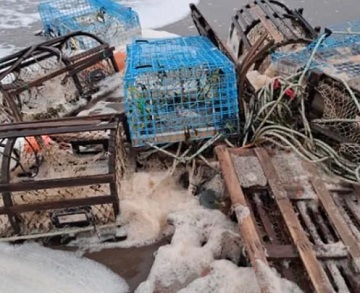
More than 100 lobster traps destroyed by weekend storm
More than 100 damaged lobster traps washed ashore after a powerful storm struck the northeast coast of New Brunswick on Friday. The traps were found mangled and destroyed on the beach at Val Comeau and other nearby areas on the Acadian Peninsula, south of Tracadie, on Sunday morning. James MacEachern, a fisherman who lives in Tabusintac on the north side of Miramichi Bay, saw the storm evolving early Friday morning. “When I went out in the morning, it was already rough,” MacEachern said. “Probably four in the morning, [the storm] had already started.” >click to read< 11:47
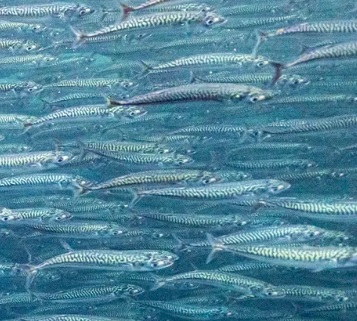
‘The people’s fish’: Atlantic mackerel stocks have collapsed – can a moratorium bring them back?
Canada’s Atlantic mackerel population is a shadow of what it once was, and its decline threatens the well-being of the people who depend on it. Mackerel supports one of Atlantic Canada’s top recreational fisheries, and one of its oldest commercial fisheries. The fish is also used for bait, and it has an important place in Indigenous cultures. The same migratory stock supports recreational and commercial fisheries in the U.S. Last March, the federal Department of Fisheries and Oceans closed Canada’s commercial and bait mackerel fisheries for one year and placed daily personal limits on the recreational fishery, to give the population time to rebound. But the U.S. fishery remains open, albeit with a reduced quota. Next week, federal Fisheries Minister Joyce Murray will decide whether to reopen the Canadian fishery. The DFO’s latest studies have found no sign of recovery in the mackerel stock. Photos, >click to read< 13:09
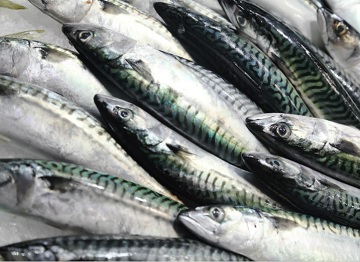
Atlantic mackerel population continues to decline a year after fishery moratorium
The Atlantic mackerel population is continuing to decline after a decade of falling numbers, according to a federal assessment presented to industry and environmental groups in Halifax this week. According to the 2022 assessment, mackerel stock remains in the “critical zone” — where serious harm is occurring — and the average number of fish reaching spawning age is only 27 per cent of what it was between 1969 and 2011. “The amount of young fish entering your population has been rather low in the last couple of years. That’s concerning,” Elisabeth Van Beveren, a biologist with the federal department of Fisheries and Oceans, said. In Newfoundland and Labrador, seafood companies and fishermen have claimed for years that DFO has it all wrong because mackerel are plentiful around their coast. >click to read< 15:32
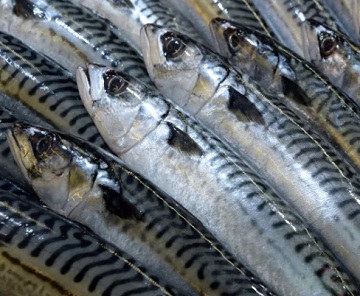
U.S. announces reduced East Coast commercial mackerel quota for 2023
The United States will proceed with a commercial fishery of the depleted East Coast mackerel stock it shares with Canada in 2023. The U.S. quota was released this week, putting pressure on Canada which has yet to decide whether it will continue a total moratorium it imposed in 2022 to help rebuild the population. The National Oceanic and Atmospheric Administration, the U.S. equivalent of the Fisheries and Oceans Canada (DFO), announced on Tuesday a total allowable catch of 3,639 metric tonnes. It was 27 per cent cut from 2022 in recognition that the transboundary stock remains in trouble and is overfished. >click to read< 19:01
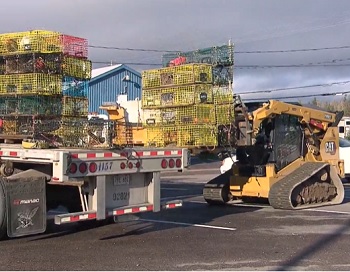
New Brunswick: Only 2% of lobster traps scattered by Fiona retrieved so far
The massive cleanup and recovery operation to find the thousands of traps lost during post-tropical storm Fiona in September has only turned up a small number so far. The Maritime Fishermen’s Union is leading the cleanup taking place in LFA 25, a lobster fishing zone that takes in a good portion of the Northumberland Strait. The union told Radio-Canada that 1,000 traps have been found so far. Video, >click to read< 09:47
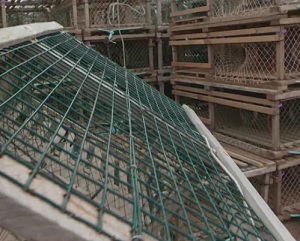
Atlantic Canada: Lobster fishery hoping for federal $$ to recover gear lost to Fiona
A plan is in the works to try to retrieve potentially thousands of lobster traps that were lost during post-tropical storm Fiona nearly two weeks ago. The storm, which battered Atlantic Canada with high winds and storm surges, resulted in tens of thousands of traps being damaged and lost in the Northumberland Strait, where fishermen in southeastern New Brunswick and northwestern Prince Edward Island are currently fishing. Luc LeBlanc, a fisheries adviser with the Maritime Fishermen’s Union, said while many traps have been recovered since the storm, “a few thousand” are still missing, and a plan is being worked out to find them and bring them ashore once the lobster season ends on Oct. 12. >click to read< 10:05

Lobster prices up slightly 3 weeks after protest
Lobster prices have rebounded a bit as the fishing season nears the halfway point in the Northumberland Strait area. Fishermen are now getting about $6/pound for their catches, said Luc LeBlanc of the Maritime Fishermen’s Union. That’s up from about $4.50 a few weeks ago, when hundreds of fishermen from along the east coast of New Brunswick protested in Shediac. Some of them said they would not be going out fishing because it would cost them more than they would get paid to do so. Most are fishing, however, because they need the cash flow. >click to read< 07:49
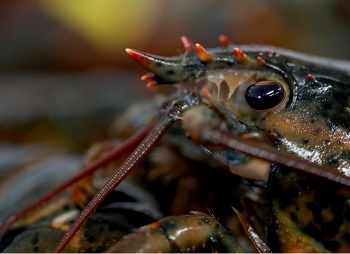
Canada and Nova Scotia help support adoption of new and improved on-board lobster handling/holding technologies
On behalf of the Honourable Joyce Murray, Minister of Fisheries, Oceans and the Canadian Coast Guard, the Honourable Sean Fraser, Minister of Immigration, Refugees and Citizenship and Member of Parliament for Central Nova, and the Honourable Steve Craig, Nova Scotia Minister of Fisheries and Aquaculture, announced a total contribution of over $400,000 to help the Maritime Fishermen’s Union deliver a project to its members that will improve the quality, vitality and value of harvested lobster. This funding will help the lobster fishery in the Southeastern Northumberland Strait, Eastern Cape Breton and Southwest Nova Scotia improve the quality of lobster being marketed, the efficiency of fishing activities, and the onboard safety of crew. Live-well systems, which measure water quality, will be installed or upgraded on vessels. >click to read< 13:16
Funding announced to help support quality of harvested lobster – >click to read<

Lobster fishermen angry about low prices refuse to fish
About 250 southeastern New Brunswick lobster fishermen gathered outside the new Homarus Centre in Shediac on Thursday after refusing to fish. The fishermen say prices are 40 per cent lower than last year, when they were getting $7 for a pound of lobster. This season, they said, they’re getting $4.50 to $5 a pound, which they say isn’t profitable with the higher expenses they’ve faced because of inflation. Luc Leblanc, the spokesperson from the Maritime Fishermen’s Union said the gathering was peaceful. “The fishermen just wanted to let their feelings known and to make a little bit of a splash, which is what they did.” Geoff Irvine of the Lobster Council Canada said prices are declining because of consumer behaviour and market patterns. >click to read< 18:21
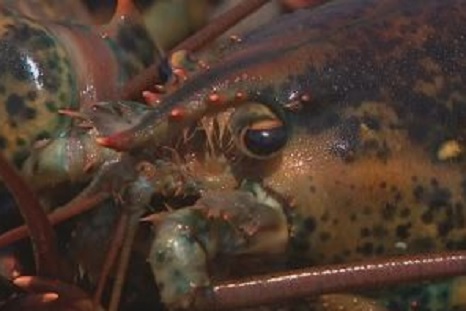
Lobster fishing is not profitable this year, fishermen explain
Rampant inflation and cooling markets are hitting Maritime lobster fishers hard. Six days after the start of fishing in the Northumberland Strait, some of them are receiving a price up to 40% lower than last year for their catch. A fishermen’s organization believes that this is not profitable. The atmosphere was not festive at the Cap-Pelé wharf on Tuesday afternoon. Fishermen have learned what price they will get for lobster this season: between $4.50 and $5 a pound. Last year at this time they were getting $7 a pound. We have prices, but it is not strong. They say it’s blocked everywhere, that lobster doesn’t sell, that’s the reason, explains Captain Guy Cormier. I take it one day at a time, we’re not dead today. >click to read< 07:50
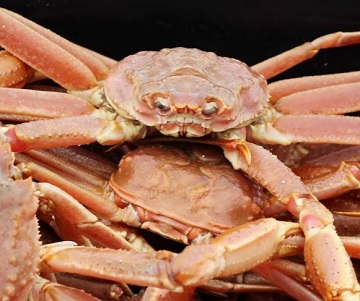
Snow crab prices plummet in Newfoundland
It wasn’t the news fish harvesters in Newfoundland and Labrador wanted to hear. They’ll get less for their snow crab after today, as the result of a decision by the province’s fish price setting panel. After reviewing a request from the Association of Seafood Producers and arguments by the Fish Food and Allied Workers, the panel went with the processors’ pitch of $6.15 per pound. That’s down nearly 20 per cent from the $7.60 per pound price that was set for the start of the season on April 1. In Nova Scotia, fish harvesters also saw a drop in snow crab prices a couple of weeks ago. They are now getting $8.25 a pound for snow crab, according to Gordon Beaton, local president with the Maritime Fishermen’s Union. >click to read< 11:06
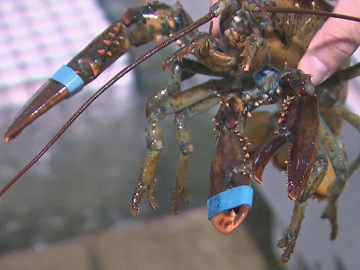
Last lobster season for ‘canners’ – More lobster is the goal
New Brunswick lobster fishermen along the Bay of Chaleur, Acadian Peninsula and Miramichi Bay are setting their traps for the 2022 season Tuesday and this is the last year they’ll be fishing for two different size and price classes. Members of the Maritime Fishermen’s Union in Lobster Fishing Area 23 voted 75 per cent in favour of phasing out the “canner” size, a spokesperson for the group confirmed. Indigenous organizations were also consulted about the change, the Department of Fisheries and Oceans said in a news release. >click to read< 12:30

DFO enacts new regulations aimed at depleted fish stocks
The Department of Fisheries and Oceans has enacted new regulations that bind its minister to rebuilding Canada’s depleted fish stocks and ensuring healthy ones stay that way, a move that comes weeks after it closed down two East Coast fisheries in the name of sustainability. The regulations are the teeth behind amendments to the Fisheries Act passed in 2019 and have been closely watched by the commercial fishing industry and environmentalists. The changes were posted Wednesday in the Canada Gazette. It identified 30 major fish stocks that will require a rebuilding plan,,, The minister for the department will have up to three years to produce a rebuilding plan once the stock has hit the limit reference point. >click to read< 16:32
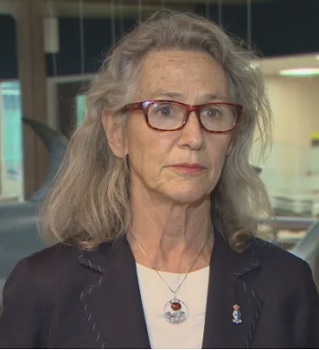
Immediate closure of herring and mackerel fisheries a broadside into coastal fishing communities
The Coalition of Atlantic and Québec fishing organizations questions the rapidity of the government decision and the lack of transparency in the science. “How do you go from a no closure to a closure situation without consulting commercial fishers,” said Martin Mallet, MFU Executive Director. “The 2021 stock assessment showed that the 4000t quota would enable recovery of the resource. This decision had been taken in collaboration with industry, and we were to revise the situation after the next stock assessment in 2023. Without consultation or even advance notice of a potential problem, DFO has slammed the commercial fishery.” This unilateral closure of the spring herring and mackerel commercial fisheries will have a major negative impact on the fishery since these fish are a significant source of bait for the lobster and snow crab fisheries. >click to read< 09:16
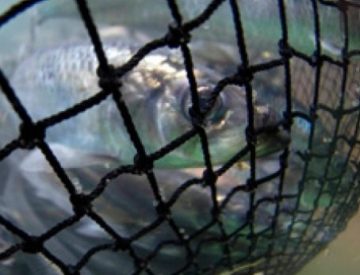
Ottawa announces closure of Atlantic mackerel, bait fisheries to restore stocks
Fishers on the East Coast are expressing their disappointment with Ottawa after DFO closed the Atlantic mackerel and commercial bait fisheries, citing concerns that dwindling stocks have entered a “critical zone.” The department said in a release Wednesday it was taking “urgent action” to help preserve the stock of southern Gulf spring herring and Atlantic mackerel with the closures in Atlantic Canada and Quebec. Fisheries Minister Joyce  Murray said she recognizes many harvesters depend on the fisheries, and she promised to work with them and others in the industry to preserve the stocks. Fishers in the sector, however, want the decision reversed. Martin Mallet, “It’s going to have a major impact — an atomic bomb impact — on our whole East Coast fishery, from Newfoundland to Quebec to southwest Nova Scotia,” >click to read< 18:52
Murray said she recognizes many harvesters depend on the fisheries, and she promised to work with them and others in the industry to preserve the stocks. Fishers in the sector, however, want the decision reversed. Martin Mallet, “It’s going to have a major impact — an atomic bomb impact — on our whole East Coast fishery, from Newfoundland to Quebec to southwest Nova Scotia,” >click to read< 18:52

DFO: moderate livelihood fisheries must occur during commercial season
The Trudeau government will announce conditions for the authorization of moderate livelihood fisheries Thursday, including the expectation that those fisheries take place within existing commercial seasons. The Assembly of Nova Scotia Mi’kmaw Chiefs did not respond to a request for comment, but Mi’kmaw leaders and some academics have insisted the moderate livelihood fishery poses no risk to stocks because it is too small. The office of Fisheries and Oceans Minister Bernadette Jordan declined to comment in detail on DFO’s position until it is released Thursday, except to say the decision is based on conservation. >click to read< 07:10
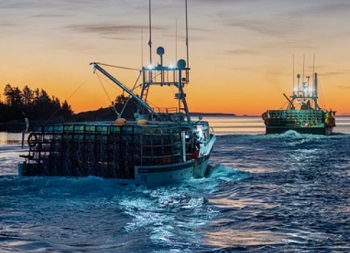
‘There’s Death Threats’: Indigenous Fishers Nervous as Nova Scotia’s Commercial Lobster Season Opens
Some Mi’kmaq have fished alongside commercial fishermen on these wharves for years but this year, after violence erupted in the past few months, they’re now divided largely by race—the white Acadian fishermen at Meteghan, and the Mi’kmaq at Saulnierville, with each flying their own flags. A court injunction, sought by the Mi’kmaq, has further separated the two groups, in an effort to prevent any more aggression and harassment towards band members on the Saulnierville wharf and on the water as they continue to fish until Dec. 17, the end of their moderate livelihood plan. The commercial inshore lobster fishery, expected to launch later this week, runs until the end of May. >click to read< 20:37
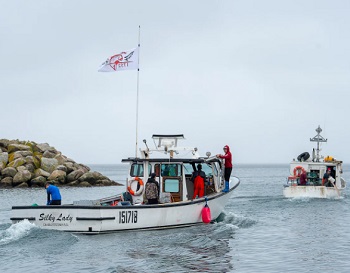
For Acadian fisherman, early Mi’kmaq fishery in N.S. bay can ‘never’ be respected
As he stands calmly splicing anchor rope, Roger LeBlanc describes the anxiety, anger and suspicion over a Mi’kmaq lobster fishery that is coursing through his small Acadian community. The threat perceived by LeBlanc, 61, is the launch of a lobster fishery by Sipekne’katik First Nation in September,,, In the weeks that followed, Indigenous traps were cut, a boat burned, vehicles were destroyed, and one lobster pound that handles Indigenous catch was damaged while another was burned down. The actions by groups of up to 200 people have drawn condemnation from across party lines in Parliament. >click to read< 13:40

Peaceful protest, peace offering in disputed First Nations lobster fishery
There were peaceful protests Friday in Nova Scotia by commercial fishermen, following a symbolic gesture of peace the day before between some commercial fishermen and the First Nations band at the centre of a disputed lobster fishery. Gordon Beaton, the president of Local 4 of the Maritime Fishermen’s Union, said fishermen are worried where the fishery is headed.,, “We don’t argue the treaty,” said Beaton. “We’re not arguing the fishing rights that they have. They have a right to First Nations fishery, but we want the right to be executed in a way that’s sustainable for everybody.” >click to read< 16:09

Feds distribute first of 322 dormant commercial fishing licences to Maritime First Nations
The federal government has started to distribute dormant, or “banked,” commercial fishing licences to First Nations in the Maritimes to finally implement a 1999 Supreme Court ruling that First Nations are entitled to earn a moderate livelihood from the fishery. The first 10 “banked licences”, out of a pool of 322 available in the Maritimes, were issued this month to Elsipogtog and Esgenoôpetitj First Nations in New Brunswick as part of historic Rights and Reconciliation Agreements signed in August 2019.,, The pool of 322 banked licences cover a wide variety of species including lobster, scallop, swordfish, herring and oysters. The total breakdown per province: 99 licences in Nova Scotia, 122 in New Brunswick and 101 in Prince Edward Island. There is a complete list,,, >click to read< 17:34

Consultation lacking on decision to reactivate licenses for Indigenous communities
The reactivation of dormant lobster fishing licences by the federal government has prompted a terse statement from the P.E.I. Fishermen’s Association (PEIFA) and the Maritime Fishermen’s Union (MFU). The two organizations say they were left out of consultation over the reactivation of 10 lobster licences by the Department of Fisheries and Oceans (DFO) in the Lobster Fishing Area (LFA) 25, located on the western end of the Northumberland Strait between P.E.I. and New Brunswick.,,, The statement said fishermen were “frustrated” by the lack of consultation prior to the decision and called for the federal government to bring together Indigenous and non-Indigenous fishermen’s organizations. >click to read< 09:54
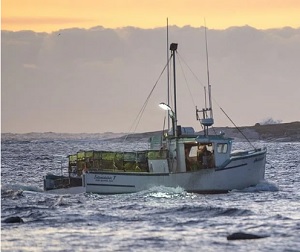
“Things could’ve been way worse”: Spring lobster season nears end amid coronavirus, “Things are stabilizing”
The Maritime Fishermen’s Union predicted a gloomy forecast for the spring season with the pandemic’s safety concerns, crushed markets and reduced processing capacity. But fishermen are taking it “day-by-day,” says the union’s executive director. “Things could’ve been way worse,” says Martin Mallet. “At least our fishermen have had a chance to go out and catch part of their catch.” Restaurants reopening is also helping market demand increase. >click to read< 08:49
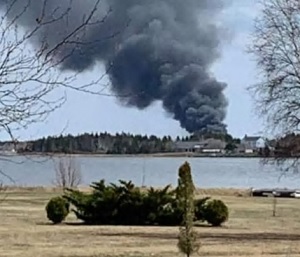
UPDATED – New Brunswick: ‘This is terrible’, Val-Comeau seafood processing plant goes up in flames
A seafood processing plant in northeastern New Brunswick has gone up in flames Thursday afternoon. A plume of thick black smoke could be seen coming from Les Pêcheries de Chez Nous facility in Val-Comeau, a small coastal community now part of the regional municipality of Tracadie. Emmaneul Moyen, a representative of the Maritime Fishermen’s Union, told Radio-Canada it’s devastating news. He said about 100 local fishermen sell their catch to the plant, which had been operating at full capacity. “We are probably talking about 250 workers,” he said. >click to read the updated story< 16:47

Coronavirus: Atlantic Canada’s fishing industry calls on feds for help
Crab and lobster fisheries throughout Atlantic Canada have faced delayed season openings due to fears about the coronavirus spreading in small communities and close working conditions. A significant drop in prices due to a collapse in retail and restaurant markets in the United States, Japan and China, major export markets for Canada’s seafood, overshadow the start of the season for many. Responding to a question during Tuesday’s virtual House of Commons meeting, Fisheries Minister Bernadette Jordan said support for the industry would be announced in the coming days, but by Thursday no additional details were available. >click to read< 09:09
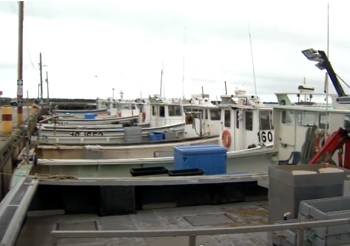
Coronavirus: ‘Extremely difficult’ for fishing industry to maintain health protocols if season proceeds: union
“Truth be told, it’s going to be extremely difficult,” says Martin Mallet, the executive director of the Maritime Fishermen’s Union. “The boats are not designed to enable social distancing.” A letter to the federal government, signed by Lobster Processors of New Brunswick and Nova Scotia and more than 20 other industry stakeholders, have called for a delay of at least two weeks.,, “But on top of that, we have some extremely serious issues with the markets right now, especially for lobster,” Mallet says. >click to read< 07:54
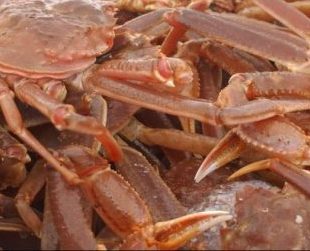
Feds delay Snow Crab season in Gulf of St. Lawrence
The Department of Fisheries and Oceans said the decision on Thursday to pause the season will let everyone involved in the fishery to put necessary health and safety measures in place. Seafood processors in the Maritimes had called on Ottawa to delay the crab and lobster season, warning that moving ahead with fishing risks workers’ health — and the bottom line — amid the COVID-19 pandemic.,, New Brunswick Premier Blaine Higgs said Thursday the province hopes Fisheries and Oceans Canada will delay the spring season for a few weeks, with the possibility of federal compensation. The Maritime Fishermen’s Union, which represents 1,200 harvesters in New Brunswick, said Friday they support a delay of the lobster season until May 15 >click to read< 16:28

‘Find some good solutions’: governments, experts, fishermen prepare for 2020 right whale regulations
An annual roundtable meeting held by officials with the Department of Fisheries and Oceans has wrapped up after discussing how to deal with the declining North Atlantic right whale population. The subject has become controversial after at least nine confirmed deaths in 2019, with several preliminary findings indicating vessel strikes were the cause. Some of the deaths came despite the Canadian government cracking down tighter on fisheries closures and speed restrictions, but the impact on the fishing industry is part of what makes regulations such a controversial topic. >click to read< 08:43



































